FACS NEWSLETTER
Obituary of Prof. R S Ramakrishna
发布时间:2016年05月06日 来源:中国化学会
Prof. J.N.Oleap Fernando
The Open University of Sri Lanka
| Prof. R S Ramakrishna, born on January 3 1932, graduated in Chemistry with Honours from the University of Ceylon at Colombo in 1955. Having joined the academic staff of the Dept. of Chemistry at the University in 1957, he earned his D. Phil from the University of Oxford after two years of extensive research in 1961 and served the University of Ceylon in Colombo until 1989. He was appointed Associate Professor in Chemistry in 1970 and Professor of Chemistry in 1979. Prof. Ramakrishna developed & nourished a very active research school at the University of Colombo in Co-ordination and Analytical Chemistry in the late sixties. |
|
Prof. Ramakrishna was single handedly responsible for inaugurating the first ever post-graduate taught course in any branch of Science in a Sri Lankan University when the M.Sc. Course in Analytical Chemistry was commenced in 1975. This course enhanced the incorporation of Analytical and subsequently Environmental Chemistry into the Chemistry Curriculum in Sri Lankan Universities.
With financial support from the Canadian International Development Agency and academic support from the Dalhousie University in Canada, Prof. Ramakrishna was able to establish the Centre for Analytical Research & Development within the Dept. of Chemistry in the University of Colombo in 1984. The services of this Centre enhanced Analytical Chemistry research in Sri Lanka and led to the publication of many research papers in international and national journals along with the award of several PhD/MPhil/MSc degrees under his direct supervision. The first ever international conference in Analytical Chemistry was held in 1984 as result of these initiatives of Prof. Ramakrishna.
Prof. Ramakrishna took a bold initiative in setting up of the "University -Industry Interaction" program through the University Grants Commission in Sri Lanka. As a member of the National Committee set up for the purpose from 1982 - 1989. Prof. Ramakrishna spared no pain to implement an active interaction programme on the basis of recommendations made by a Workshop organized by him in 1986.
While being involved very actively in research and winning, interalia, the UNESCO-SLAAS award for a young scientist at the age of 39 years in 1971, Prof. Ramakrishna was a very active participant in the activities of learned societies such as the Sri Lanka Association for the Advancement of Science and Professional bodies. He was Secretary of the Chemical Society of Ceylon (1963), Chairman of the Sri Lanka Section of the Royal Institute of Chemistry (1971) and President of the Institute of Chemistry, Ceylon (1978/79). While occupying the latter position, he took a bold initiative to respond positively to the formation of the Federation of Asian Chemical Societies by getting the Institute of Chemistry, Ceylon to enroll as a Founder Member despite the very difficult financial position of the Institute and contrary views expressed by his fellow chemists. His foresight in responding favourably to such international endeavours is however viewed today with great praise and appreciation. This has led to the Institute of Chemistry, Ceylon being a continuous member of this Federation and playing an important role in it for the past 25 years. Prof. Ramakrishna was very closely associated with Prof Kingston in these international collaborative activities for which he accorded a very active place. Prof. Ramakrishna himself represented the Institute of Chemistry, Ceylon at many of the FACS meetings in the early eighties and served on its Executive Council for 4 years from 1981 -1985. I took on this Executive Council position in 1985 when I was President of the Institute of Chemistry, Ceylon.
Prof. Ramakrishna also played a very active role in the commencement of Professional Courses in Chemistry at B.Sc. (Special) degree level during his Presidency of the Institute of Chemistry, Ceylon in 1979. His foresight in nurturing this professional education programme is viewed with unique programme is viewed with great respect when it is noted that this unique programme is today producing much more Graduate Chemists than any other Sri Lankan University.
Prof. Ramakrishna's services to the Chemistry Profession, both in Sri Lanka & abroad was recognised by the Institute of Chemistry, Ceylon when it honoured him with the Distinguished Service Award in 1999. The University of Colombo recognized his long and dedicated service to that University for over 33 years and his invaluable contribution to the advancement of Science in Sri Lanka by conferring the degree of D.Sc. (honoris causa) in 1999.
It was indeed a big loss to Sri Lankan Chemistry & Science when Prof. Ramakrishna was compelled to leave the University of Colombo and accept the Chair of Chemistry in the University of Botswana in 1989 in order to obtain the funds necessary to educate his son abroad. Prof. Ramakrishna, true to his characteristic spirit and form, played a very leading role in developing the teaching of tertiary chemistry in Botswana. Unfortunately, a mysterious and gradually debilitating illness that he suffered from in the mid-nineties led to his early return to Sri Lanka from Botswana and a gradually deteriorating state of health. Despite being forced to move around on a wheel-chair in the last few years of his life.
Prof. Ramakrishna always made it a point to attend important meetings and events of learned societies and professional bodies.
Prof. Ramakrishna passed away on 24th June & his mortal remains were cremated in the presence of a representatives gathering of chemists, friends and relatives on June 25th 2002. It was therefore very unfortunate that Prof. Ramakrishna could not lay the foundation stone for the Headquarters of the Institute of Chemistry, Ceylon on the following day as originally decided. However the Institute of Chemistry, Ceylon has established a memorial fund to collect funds that would enable the furbishment of one laboratory in this new building presently under construction that would be named after him as the Ramakrishna Laboratory.



